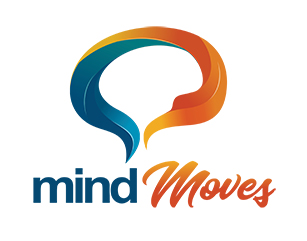Appreciate Feedback – Be Teachable

It’s very easy to see things from the outside looking in and apply our own life lessons to someone else’s situation. You know what it’s like … you talk to someone with a health challenge and you know just who they should see or what they should take because you’ve been through it. You might observe someone struggling with a work or personal issue and you know exactly what they should be doing and how they should be dealing with that situation. Have you offered your advice in that way before? Have you ever had it rejected? Yeah – me too.
Sometimes it’s not wanted. The other person gets defensive and then we get upset because they didn’t listen to us, and then we say something we shouldn’t. Or, we simply choose not to communicate with them because they are a person who doesn’t listen. There’s so many different ways to look at this and I’d like to visit three of them.
Firstly, if we are the one giving advice and we find ourselves getting upset, let’s ask ourselves – ‘Did this person ask for my help?’ If not, then let’s consider the reason why we think our advice from our situation will suit their exact circumstances. We haven’t lived their life, had the experiences they’ve had, nor have we faced their exact challenges. What would happen if we sat in the space of grace and simply listened to them? I mean really heard what they were saying without putting our story on the situation. What could that do for them instead? I find in my coaching and work with individuals that people with concerns or issues will usually find and own their solution if they are allowed the space to articulate their problem and figure it out with a genuine listening ear to provide support. The power of listening is incredibly powerful, and yes – the space of grace is not an easy place to be. Especially when we think we have a solution that can help. We talk about this on our Transforming Communication course.
Secondly, it can be very easy label the person as being a ‘they never listen’ person and therefore we shut down on them and maybe even stop talking to them because they know it all. The solution really lies in us though. Did this person ask for our help? If they didn’t, then could it be that we may have trod on their toes? Maybe they simply want to articulate their situation as a means of blowing off some steam and they trust us to listen? And we’ve already decided we’re done. Once again, we haven’t really listened or made the connection and really understood. We’ve been in our head with our story of what’s up with them and maybe they needed more talking space?
Thirdly, let’s put the shoe on the other foot – WE are the person with the challenge or issue and someone you know well offers their best advice on OUR situation. It’s easy to get defensive and consider they don’t know what they’re talking about. Right? They don’t know this exact situation like we do. Right? So … what would happen if we considered it feedback? What would happen if we accepted that they are speaking from their view of the world and telling us their story rather than helping us? What would happen if we were the gracious one and appreciated that they were doing their best to help? And, what if, upon reflection, what they offered really did have merit? Sometimes that reflection doesn’t occur until hours or days later … and if we’ve reacted, well, I guess you know how that can play out.
One thing I love most about feedback – it’s just that. Feedback. It’s someone else’s view of how they see me in the world. And they’re entitled to it. It reminds me of the quote that “What others think of me is none of my business” by Dr Wayne Dyer. Sometimes I learn from it, other times, I find that it’s not that useful. The main thing is that I get to choose what I do with it. And, in the moment it is given, it’s not always easy to be grateful and appreciate it.
This week’s chapter in ‘The To Be List’ by Latesha Randall is all about being teachable – appreciating the feedback we get from others, how they see us in the world and considering that the looking at me from the outside view has something to offer. How ‘teachable’ are you? How often do you thank people for the feedback they give?
